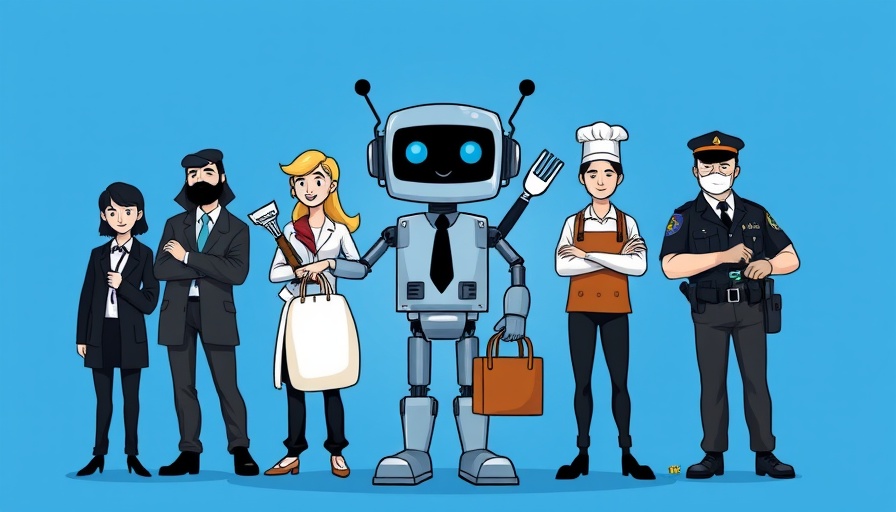
AI's Impact on Employment: A Catalyst for Change
As artificial intelligence (AI) continues to advance, its influence on the job market is becoming increasingly profound. According to a recent Pew Research survey, which included over 5,400 U.S. adults and more than 1,000 AI experts, three professions stand out as being most vulnerable to AI-induced obsolescence over the next two decades: cashiers, journalists, and factory workers.
Understanding the Experts' Perspective
The survey highlights an important divergence in perceptions about the future of work. While only 23% of the general public believes AI will positively impact their jobs, a striking 73% of AI experts are optimistic about AI’s role in creating new opportunities. This discrepancy underscores a gap in understanding the potential for AI not just to replace jobs but to transform industries and create new roles that didn't previously exist.
Jobs Under Threat: Cashiers, Journalists, and Factory Workers
With the rise of self-service kiosks in retail and automated systems in manufacturing, the role of cashiers and factory workers is particularly tenuous. Both groups face projections of significant job losses, with 73% of respondents from both expert and general populations agreeing on this point. Similarly, the role of journalists is challenged by AI’s growing capabilities in content creation and curation, raising concerns about the future of quality journalism.
Current Trends and Future Predictions
These findings reflect broader trends in automation across various sectors. Goldman Sachs and McKinsey estimates suggest that millions of jobs could be displaced within the next decade. As industries increasingly adopt AI technologies, it is crucial for business owners and managers to prepare for these changes by reskilling their workforce and embracing new technologies.
Opportunities Amid Disruption
Despite the challenges posed by AI, there are also unique benefits to harnessing these technologies. By understanding which roles are at risk, businesses can strategically pivot and innovate. Employers might consider leveraging AI to enhance efficiency rather than viewing it solely as a replacement for human labor. This mindset shift can foster resilience in the workforce and open doors to new business models.
Concluding Thoughts on the Future of Work
The landscape of employment is undoubtedly changing. For business owners and managers, staying informed about these developments is crucial. Understanding AI's potential impact allows for proactive approaches that can safeguard not only individual jobs but also the health of entire industries. As AI reshapes the workforce, Adaptability, and a forward-thinking mentality will be key to navigating this transition successfully.
 Add Row
Add Row  Add
Add 

 Add Row
Add Row  Add Element
Add Element 




Write A Comment